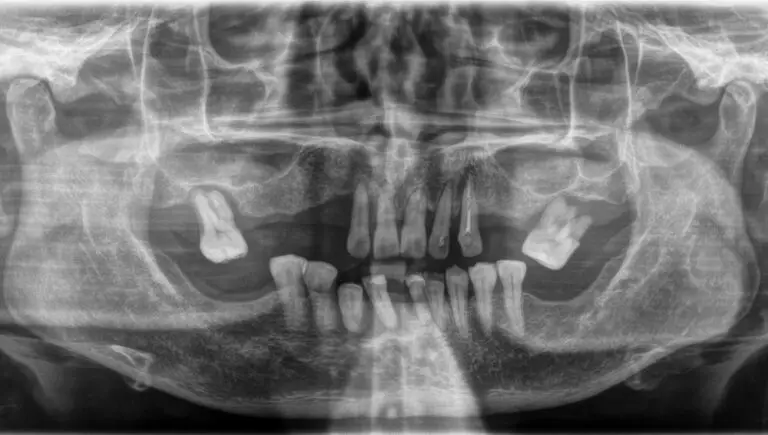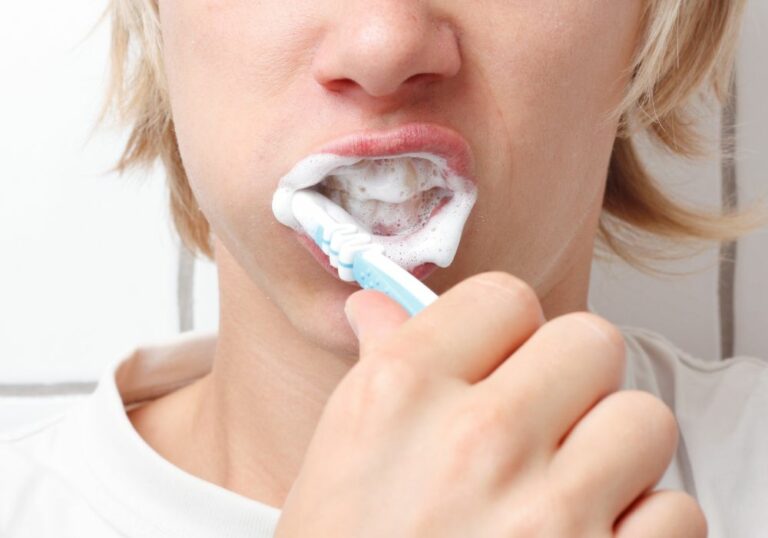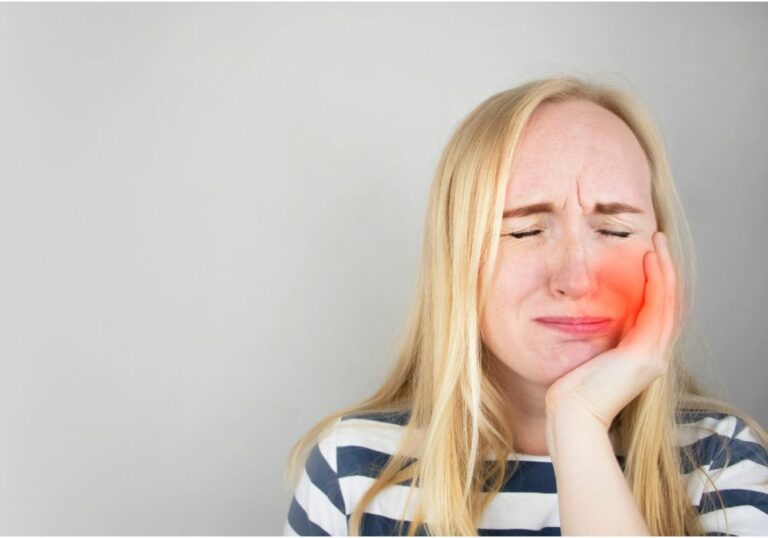Do you have a dog that seems to gently nibble or mouth your hands, arms, or clothing with their front teeth? This common canine behavior has a few possible motivations behind it. While usually harmless, it’s helpful to understand why dogs nibble and how to discourage it if unwanted.
Understanding Dog Nibbling Behavior
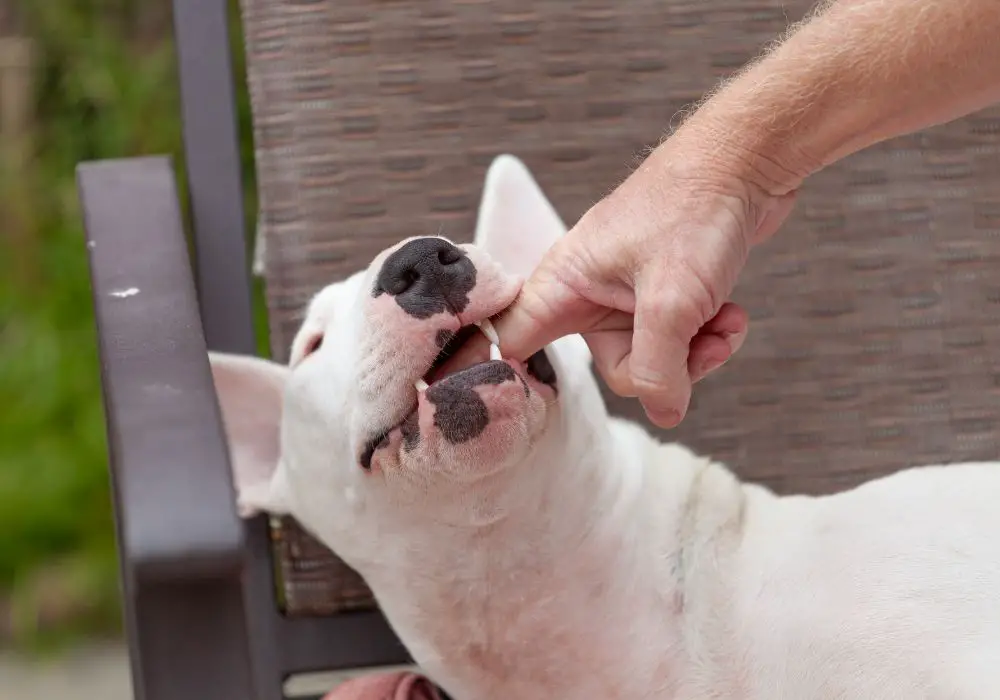
It’s very common for dogs to gently nibble or “mouth” on people using their front teeth. This behavior has a few potential motivations behind it:
Exploring Through Mouthing
For dogs, mouthing behaviors are normal ways for them to explore their environment. Puppies will mouth and nibble on their littermates, human hands, and other objects as a way to investigate textures, shapes, and densities. Since their vision and sense of smell are not fully developed as puppies, they rely a lot on their mouth to make sense of the world around them. This tendency often continues into adulthood for many dogs. They use their front teeth specifically because the incisors are smaller, sharper, and more sensitive, allowing for precise nibbling.
Seeking Attention or Affection
Another key reason dogs nibble is to seek attention or affection from human owners. Dogs are highly social, and nibbling or placing a human’s hand gently in their mouth can be the dog’s way of soliciting play and interaction. It’s their version of saying “pet me!” or “play with me!” This type of nibbling often occurs when the dog is standing near the owner and wants to engage them. It’s usually very light mouthing that does not cause pain or injury.
Communicating Excitement or Stress
Dogs may also gently mouth as a way to convey excitement, such as during energetic play sessions. The nibbling communicates their enthusiasm. Dogs also tend to nibble when stressed or anxious. New environments, loud noises, unfamiliar people, or negative encounters can cause dogs to nibble lightly on people or objects as an outlet for their nervous energy. It seems to be a self-soothing mechanism for some dogs when they feel unsure or overwhelmed.
Investigating Tastes and Textures
Additionally, dogs explore tastes and textures through nibbling behaviors. Their sensitive front teeth provide a wealth of feedback on flavors, scents, temperatures, and the feel of different objects in their mouths. Your hands and body may have traces of food, lotion, soap, dirt, or other intriguing smells and flavors that prompt your dog to gently sample them with their incisors. Fabrics, fur, skin, jewelry, and more all provide unique tactile feedback when sampled by a dog.
Is This Aggressive Behavior?
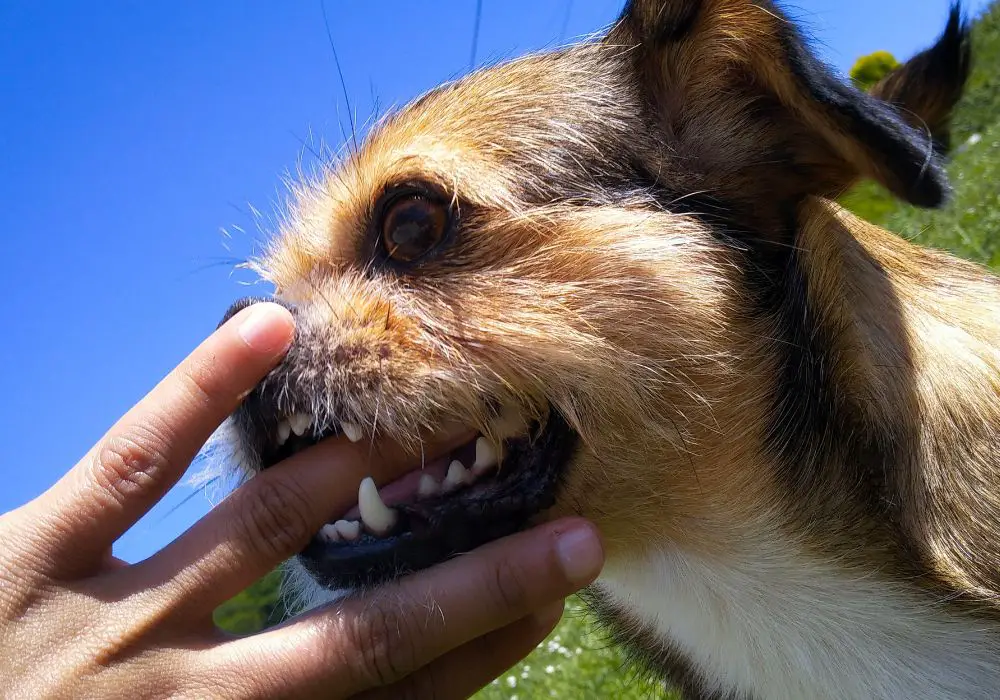
For the most part, light nibbling stemming from curiosity, anxiety, or affection seeking is not true aggression in dogs. It’s simply part of their normal behavioral repertoire. However, sometimes this gentle mouthing can become more problematic if a dog starts to bite down with greater force, causing pain, injury, or damage.
Signs that nibbling may have crossed over into aggressive behavior include:
- Biting that leaves marks, scratches, punctures or bruising
- Biting down hard enough to make you flinch or say “ouch!”
- Biting that’s accompanied by growling, lunging, or snarling
- Biting that seems to increase in intensity despite correction
- Biting that becomes harder and inhibits play
- Biting that feels meant to intimidate
True aggression often relates to fear, possessiveness, dominance, lack of bite inhibition, or redirected excitement/frustration. It’s important to identify and address the root cause through proper training.
When to Be Concerned About Excessive Nibbling
See your veterinarian promptly if your dog suddenly starts nibbling excessively when he never did so before. New repetitive nibbling habits could indicate:
- Dental pain or mouth injury causing discomfort
- Neurological problems affecting behavior
- Cognitive decline from aging or neurodegenerative disorders
- Anxiety, stress, or obsessive compulsive behaviors
Additionally, seek help from an animal behavior specialist if your dog’s gentle mouthing becomes rougher and leads to injuries. A qualified trainer can assess if aggression is a factor and provide customized behavior modification therapy.
Why the Front Teeth Specifically?
When dogs nibble gently, they tend to do so using their front incisors. There are several reasons these front teeth are ideal tools for nibbling behaviors:
Smaller, Sharper Front Teeth
The incisors at the front of a dog’s mouth have much sharper and more pointed cusps than other teeth. Their smaller size and concentrated points allow dogs to grip objects and investigate textures with precision. They can apply just enough pressure to sample tastes and sensations without causing damage.
Less Danger of Pain/Injury
Behind the incisors are the significantly larger canine teeth meant for puncturing, gripping prey, and tearing. Further back are the premolars for ripping and chewing. Hard biting with these teeth increases the odds of causing pain and injury. Dogs instinctively know to inhibit the intensity of their bite force when nibbling gently and mostly just use their front teeth.
Highly Sensitive Front Teeth
Dogs have an abundance of nerve endings packed into their incisors and canine teeth. These front teeth are extremely sensitive, providing enormous amounts of tactile feedback on tastes, textures, temperatures, and amount of pressure exerted during mouthing behaviors. This sensitivity allows dogs to respond appropriately by adjusting nibbling force.
Earliest Teeth Erupt in Front
Puppies begin life with no teeth at all. But as early as 2-4 weeks of age, their first baby teeth – the incisors – start pushing through the gums. This allows young puppies to explore their world safely using their sensitive front teeth before their back teeth come in. The early learning phase focused on the front teeth establishes long-lasting nibbling habits.
Stopping Unwanted Nibbling
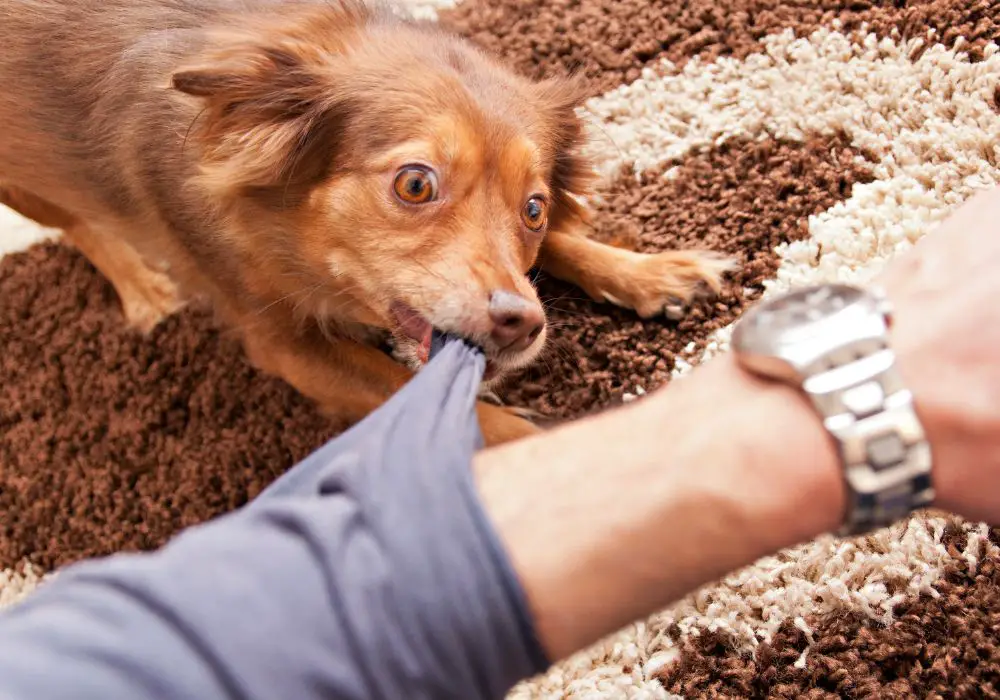
While light mouthing is normal canine behavior, dog owners often want to discourage inappropriate or excessive nibbling when directed at people. There are several effective positive training methods:
Use a Loud “Ouch!”
When your dog nibbles too hard, loudly say “Ouch!” in a high-pitched tone. This signals that the pressure was too much. Immediately stop playing or interacting with your dog for 30-60 seconds. When they are calm, praise and resume activity.
Redirect to a Chew Toy
Keep chew toys readily available. When your dog tries to nibble your hands or clothing, redirect that desire by giving them an appropriate rubber chew toy instead. Praise them while chewing the toy and reward with treats periodically.
Withdraw Your Attention
If your dog starts nibbling just to get your attention, calmly withdraw all eye contact, petting, and focus. Once they stop, praise and give affection again. This teaches them that mouthing won’t earn your attention.
Use Treat Lures
Hold a treat in your hand and guide your dog into a sit by luring them with the treat. Reward with the treat and praise only once they stop nibbling and sit. Repeat this to reinforce polite behavior.
Avoid Physical Punishment
Hitting, shoving, yelling, or physically punishing dogs for nibbling can worsen the behavior by causing fear. Always use rewards and redirection instead of risky physical discipline.
With dedicated training sessions daily, you can curb inappropriate nibbling and teach your dog to play and interact with people in a polite, gentle way. Seek professional advice if aggressive biting persists. The key is rewarding desired behaviors so your dog learns that human flesh is sensitive and requires inhibition of bite force.
Frequently Asked Questions About Dog Nibbling
Why does my new puppy nibble so much?
It’s completely normal and expected for puppies to explore objects, people, and littermates using their mouths. Puppies learn about their world by nibbling with their highly sensitive front teeth. This mouthing behavior in young puppies is investigative in nature and does not necessarily reflect aggression. Provide plenty of chew toys to satisfy the need to nibble.
Is my dog nibbling due to teething?
Teething can cause puppies and juvenile dogs to nibble and chew more frequently as their new teeth come in. The pressure and act of chewing helps relieve sore gums during this process. Offer safe, cold chew toys to make teething more comfortable and deter hazardous chewing on household objects. Closely supervise pets with edible chews.
Why does my dog nibble when excited?
Some dogs will lightly mouth/nibble when feeling excited, especially during energetic play or in anticipation of something enjoyable like a walk. The nibbling reflects their enthusiasm and joy. While excitable nibbling is usually not aggressive, redirect any mouthing onto appropriate toys to avoid over-arousal and accidental injuries.
Why does my dog nibble when I pet him?
Nibbling when being petted is a common solicitation for more attention or interaction. The dog is communicating affection for the petting person and hopes to continue engaging with them. Allow light mouthing during petting to teach bite inhibition, but stop petting if the nibbling gets too rough. Reward licking instead.
Why does my dog nibble clothing or jewelry?
Intriguing smells and textures prompt investigatory nibbling. Perfume, food odors, scented detergent, and more on clothing can attract your dog’s curiosity. Textures like shoelaces, bracelets, ties, purse straps, etc. may also entice nibbling. Provide plenty of “chew-approved” toys and consider bitter anti-chew sprays on forbidden items.
How can I teach my kids not to get nibbled?
Closely supervise young kids with dogs. Teach children to stand still and say “ouch!” if nibbled. Avoid running/shrieking, which can overexcite the dog. Show kids how to offer chew toys instead of hands and reinforce gentle manners with treats. Obedience train dogs so kids can practice handling them under your guidance.
Summary
In summary, dogs often nibble using their highly sensitive front teeth as a means of exploratory investigation, attention-seeking, communicating excitement/stress, or examining tastes and textures. While usually harmless mouthing, persistent forceful biting warrants correction through positive training. Providing appropriate outlets, withdrawing attention, and rewarding gentle mouth habits teaches dogs to inhibit bite pressure when nibbling on human skin. Consult professional help if aggressive biting persists. With time and consistency, unwanted nibbling behaviors can be reduced through proactive training starting in puppyhood.

